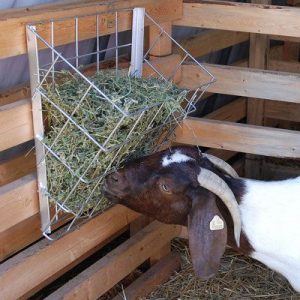Sustainable and organic farming practices have gained significant importance in recent years, and goat farming is no exception.
1. Pasture-Based Grazing System:
Implementing a pasture-based grazing system is at the core of sustainable and organic goat farming. Allowing goats to graze on diverse and pesticide-free pastures not only promotes their natural behavior but also reduces the need for supplemental feeding. Rotate pastures regularly to prevent overgrazing and maintain the health of the land.

You have to Note that our company can help you to start by giving you all the necessary information you need to get started if not yet in the business. Please check our online shop, we have all the standard business proposals for different capacities at very a cheap price made by the best agricultural specialists as well as Standard design plans that are made by the best agricultural architects around the globe. please visit our online shop now using the links below to witness by yourself
Design plans (FARM HOUSE DESIGNS – Kimd Construction & Farm Consultants)
Business plans (BUSINESS PLANS & PROPOSALS – Kimd Construction & Farm Consultants)
Welcome back from visiting our shop, hope you have placed your order for any of our products or you can place it after navigating more of our informative articles.
so let’s continue with our article!
2. Organic Feed and Forage:
When supplementary feeding is necessary, opt for organic feed and forage. Ensure that the feed is free from antibiotics, hormones, and genetically modified organisms (GMOs). Organic feed and forage provide goats with the necessary nutrients and contribute to their overall health and well-being.

3. Natural Breeding and Reproduction:
Promote natural breeding and reproduction practices to maintain the genetic diversity of your goat herd. Avoid artificial insemination and allow goats to mate naturally. This approach supports the natural instincts of the animals and contributes to the overall sustainability of your farm.
4. Chemical-Free Pest and Disease Control:
Utilize natural and organic methods to control pests and diseases on your goat farm. Implement integrated pest management strategies such as introducing beneficial insects, using physical barriers, and practicing good hygiene. Consider herbal remedies and essential oils as alternatives to chemical treatments whenever possible.
5. Water Conservation:
Water is a precious resource, and conserving it is crucial for sustainable farming. Install water-efficient systems such as drip irrigation for pasture watering and provide clean and accessible water sources for your goats. Regularly check for leaks and repair them promptly to minimize water wastage.

6. Manure Management:
Proper management of goat manure is essential for maintaining a sustainable and healthy farm environment. Collect and compost the manure to create nutrient-rich organic fertilizer. Use this compost to enhance soil fertility, reducing the need for synthetic fertilizers. Implementing a well-designed manure management system will help you maximize the benefits of goat manure while minimizing its environmental impact.

7. Natural Remedies and Herbal Supplements:
Incorporate natural remedies and herbal supplements into your goat health care routine. Essential oils, herbal extracts, and natural supplements can help prevent and treat common health issues in goats. Consult with a veterinarian experienced in holistic and natural treatments to ensure the well-being of your animals.
8. Conservation of Biodiversity:
Promote biodiversity on your farm by planting a variety of native plants, trees, and shrubs. Create habitats for beneficial insects, birds, and other wildlife. Biodiversity enhances the ecological balance, reduces the risk of pests, and contributes to the overall sustainability of your farm.

9. Reduce, Reuse, and Recycle:
Implement practices that reduce waste and promote recycling on your goat farm. Use biodegradable and eco-friendly packaging materials for your goat products. Reuse or repurpose materials whenever possible to minimize your environmental footprint.

10. Educate and Engage:
Educate yourself and your farm staff about sustainable and organic farming practices. Stay updated with the latest research and advancements in the field. Engage with the local farming community and participate in workshops and conferences to share knowledge and learn from others.
Conclusion:
By embracing sustainable and organic practices in goat farming, you contribute to the well-being of the environment, produce healthier goats, and provide consumers with high-quality, responsibly produced goat products. Implementing pasture-based grazing, using organic feed and forage, practicing natural breeding, employing chemical-free pest and disease control, conserving water, managing manure, utilizing natural remedies, promoting biodiversity, reducing waste, and continuously educating yourself are all essential steps towards a sustainable and organic goat farming operation.




